 Kristina McMorris is the author of Bridge of Scarlet Leaves (Kensington, February 2012), the story of a Caucasian violinist who secretly elopes with her Japanese-American boyfriend the night before Pearl Harbor is bombed--then joins him when he is interned at a war relocation camp. Her first novel, Letters from Home, was inspired by her grandparents' wartime courtship. She has worked as a weekly TV host since age nine, and lives in the Pacific Northwest with her husband and two sons, where she refuses to own an umbrella.
Kristina McMorris is the author of Bridge of Scarlet Leaves (Kensington, February 2012), the story of a Caucasian violinist who secretly elopes with her Japanese-American boyfriend the night before Pearl Harbor is bombed--then joins him when he is interned at a war relocation camp. Her first novel, Letters from Home, was inspired by her grandparents' wartime courtship. She has worked as a weekly TV host since age nine, and lives in the Pacific Northwest with her husband and two sons, where she refuses to own an umbrella.
On your nightstand now:
Two lovely ARCs, Sarah McCoy's The Baker's Daughter and Erika Robuck's Hemingway's Girl, and, like the rest of America, Erin Morgenstern's The Night Circus.
Favorite book when you were a child:
Are You There, God? It's Me, Margaret by Judy Blume. "We must increase our bust" became my preteen mantra; in fact, it might still be.
Your top five authors:
Sara Gruen for Water for Elephants, which solidified my choice to write historicals; Ruta Sepetys for Between Shades of Gray, because her book continues to haunt me; Markus Zusak for The Book Thief, a heart-wrenching poem of a novel; Jodi Picoult, the queen of inspiration and first pages; and Alma Katsu for mesmerizing me with her page-turner The Taker.
Book you've faked reading:
The Bible in my required Religion 101 class in college. There. I finally said it. I shall now await the bolt of lightning to strike me down.
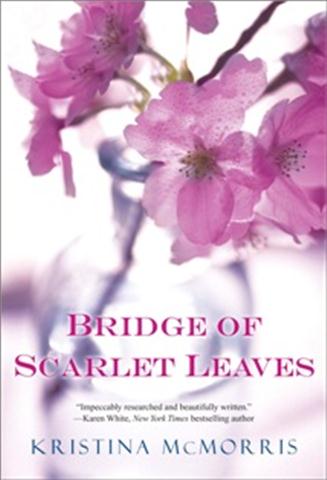 Book you're an evangelist for:
Book you're an evangelist for:
Like Oprah with The Color Purple, I hand out copies of Between Shades of Gray as if it's required reading. Any novel that begins with "They took me in my nightgown" yet manages to guide the reader through every page, even historical atrocities, with a sense of hope is a work that needs to be shared.
Book you've bought for the cover:
The Last Will of Moira Leahy by Therese Walsh (hardcover). Eerily beautiful, just like the story.
Book that changed your life:
Not a book, but letters. I was a non-reader/non-writer six years ago, when my grandparents' World War II courtship letters inspired me to pen Letters from Home. The couple's wrinkled, yellowed, endearing pages changed the course of my life. Later, it was World War II letters again, this time written by Japanese Americans in U.S. internment camps, that helped shaped my next novel, Bridge of Scarlet Leaves. As the daughter of a Japanese immigrant father and Caucasian American mother, I truly believe--all clichés aside--that it's a book I was meant to write.
Favorite line from a book:
Death, the narrator, on war: "I've seen so many young men over the years who think they're running at other young men. They are not. They are running at me." --Markus Zusak, The Book Thief
Book you most want to read again for the first time:
I'm feeling a bit repetitive here, but I have to say The Book Thief. It's one of the few books that have brought me to tears, and the only one I ever felt compelled to reread the minute I finished it.
 In part because "more and more consumers are finding out what is happening at BEA and that is impacting books they are discovering," BookExpo America is considering next year shifting the show to Thursday through Saturday and opening the last day to the general public, show director Steve Rosato wrote on the BEA blog, the Bean. Currently the trade show is held Tuesday through Thursday and is for the trade only.
In part because "more and more consumers are finding out what is happening at BEA and that is impacting books they are discovering," BookExpo America is considering next year shifting the show to Thursday through Saturday and opening the last day to the general public, show director Steve Rosato wrote on the BEA blog, the Bean. Currently the trade show is held Tuesday through Thursday and is for the trade only.






 Fueled by a consumer appetite for discounted merchandise, U.S. retailers "delivered
Fueled by a consumer appetite for discounted merchandise, U.S. retailers "delivered 
 Several independent bookstores have joined the American Booksellers Foundation for Free Expression and other organizations to
Several independent bookstores have joined the American Booksellers Foundation for Free Expression and other organizations to 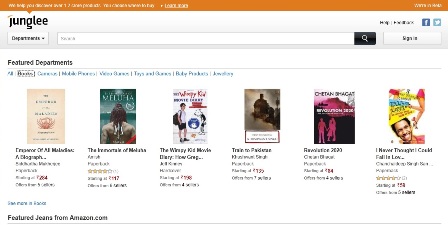
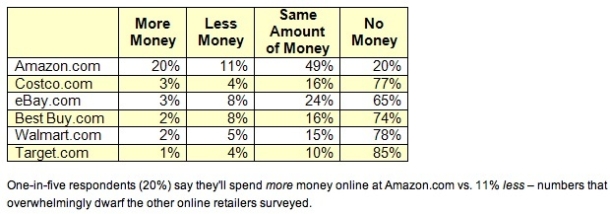
 In a move one of its reporters called "
In a move one of its reporters called " Last week Porter Square Books, Cambridge, Mass., held an event for Meg Keene, author of A Practical Wedding: Creative Ideas for Planning a Beautiful, Affordable, and Meaningful Celebration (Da Capo Lifelong Books) that drew nearly 140 people, including one couple who looked more than ready to put the book to good use.
Last week Porter Square Books, Cambridge, Mass., held an event for Meg Keene, author of A Practical Wedding: Creative Ideas for Planning a Beautiful, Affordable, and Meaningful Celebration (Da Capo Lifelong Books) that drew nearly 140 people, including one couple who looked more than ready to put the book to good use.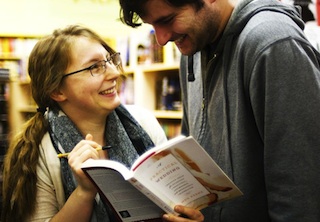
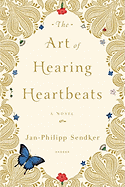 The GBO described The Art of Hearing Heartbeats this way: "Four years after a prominent Wall Street lawyer goes missing from his Bangkok hotel, his daughter, Julia Win, embarks on a quest to find him. The trail begins from a dusty, decades-old love letter discovered in a box behind a Chinese dresser, and it leads to the Shan State of what is now the Republic of Myanmar. What Julia learns of her father is the legacy of an otherworldly devotion strong enough to move mountains and remain unchanged for a lifetime."
The GBO described The Art of Hearing Heartbeats this way: "Four years after a prominent Wall Street lawyer goes missing from his Bangkok hotel, his daughter, Julia Win, embarks on a quest to find him. The trail begins from a dusty, decades-old love letter discovered in a box behind a Chinese dresser, and it leads to the Shan State of what is now the Republic of Myanmar. What Julia learns of her father is the legacy of an otherworldly devotion strong enough to move mountains and remain unchanged for a lifetime."
 Lionsgate released a new
Lionsgate released a new  Michael Sheen (The Special Relationship; The Queen) has replaced Paul Bettany in the lead role of Showtime's adaptation of Thomas Maier's book
Michael Sheen (The Special Relationship; The Queen) has replaced Paul Bettany in the lead role of Showtime's adaptation of Thomas Maier's book 
 Book you're an evangelist for:
Book you're an evangelist for: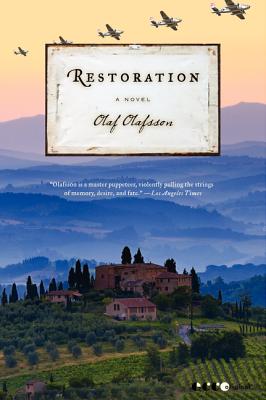 When Olaf Olafsson isn't serving as an executive v-p at Time Warner, he writes critically acclaimed novels (Walking into the Night; Absolution) and short stories (Valentines). His literary skills bring Restoration to life on a windy Tuscan hilltop north of Florence.
When Olaf Olafsson isn't serving as an executive v-p at Time Warner, he writes critically acclaimed novels (Walking into the Night; Absolution) and short stories (Valentines). His literary skills bring Restoration to life on a windy Tuscan hilltop north of Florence.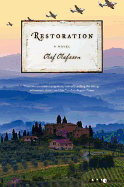
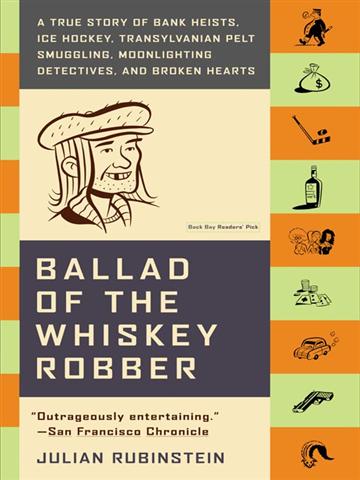 For the past week, I've been communicating with
For the past week, I've been communicating with  A Transylvania-born Hungarian, Attila defected from Romania to Hungary in 1988. He struggled initially to find his way in Budapest, but evolved over time from a poverty-stricken refugee who owned only the clothes on his back to a janitor/Zamboni driver for a hockey team, a building superintendent, a pelt smuggler, a willing--if inept--professional goalie (he once gave up 88 goals in six games) and, ultimately, one of Budapest's most successful bank robbers and a
A Transylvania-born Hungarian, Attila defected from Romania to Hungary in 1988. He struggled initially to find his way in Budapest, but evolved over time from a poverty-stricken refugee who owned only the clothes on his back to a janitor/Zamboni driver for a hockey team, a building superintendent, a pelt smuggler, a willing--if inept--professional goalie (he once gave up 88 goals in six games) and, ultimately, one of Budapest's most successful bank robbers and a  In an e-mail last week, Rubinstein noted that "Attila's crime spree so obviously struck a chord with people disillusioned about the corruption in the political and banking system in nascent capitalist Hungary. Attila's robberies of state-owned banks as his choice target drove this point home."
In an e-mail last week, Rubinstein noted that "Attila's crime spree so obviously struck a chord with people disillusioned about the corruption in the political and banking system in nascent capitalist Hungary. Attila's robberies of state-owned banks as his choice target drove this point home."